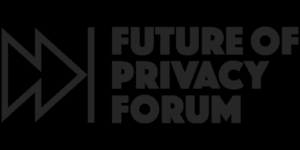Showing results for virg xped india promo code iceland

DC Privacy Forum 2025: Governance for Digital Leadership and Innovation
[…] begins on April 4, 2025 Ticket Types: FPF Advisory Board Members Active FPF Advisory Board Member organizations enjoy complimentary registration for DCPF 2025. An email with the complimentary registration code has been sent to all eligible member organizations. How to Register: Use your company email address when registering. Our system will recognize your membership. Didn’t get your complimentary […]

16th Annual Advisory Board Meeting 2025
[…] networking among peers, fostering new connections and addressing common challenges. We anticipate lively group discussions and encourage active participation from each attendee. (Chatham House Rules & FPF’s Code of Conduct are to be followed please). 2025 Advisory Board Meeting Directory The directory link (COMING SOON!) will be shared here the week of the event. […]

FPF-Sponsorship Prospectus-2025-R1
[…] of Sponsorship include: »C ompany name, logo, and website link in event invitations »O fficial recognition during the Reception by FPF Leadership »O pportunity to provide (1) promotional item and (1) giveaway via QR code. Must be approved in a dvance by FPF Sponsorship Team »P rominent recognition of name and logo on signage […]

FPF AI Governance Framework November 2024
[…] Pledges under the AI Pact were signed by over 130 stakeholders on 26 September 2024. By February 2025: (1.) The AI Board should support the Commission to promote AI literacy tools. Providers and deployers of AI systems sha ll take measures to ensure a sufficient level of AI literacy of users. (2.) The Commission […]

AB Sponsorship
[…] to you by [Your Company Name]” ❱ Company name and logo displayed on signage at event ❱ Recognition with company logo on invitations, event sites and on-site promotional materials ❱ Official recognition of sponsor during Opening Remarks ❱ Opportunity to provide (1) promotional item and (1) giveaway via QR code on breakfast tables. Must […]

Ed_AI_legal_compliance.pdf_(FInal_OCT24)
[…] facilitate adm issions decisions,the review ershould also be aw are ofm ore generalstate consum erprivacy law s thatcoverlegalorsim ilarly significanteffects ofany autom ated decision m aking.Both Colorado43and Virginia’s44law s explicitly listeducation enrollm entin theirlistofuse cases thatw ould require an optout.D epending on the tool,these use cases m ay also be in violation ofthe term […]

FPF Analysis of New Requirements for Generative AI Use by Healthcare Entities in Patient Communications
[…] Communications Intern On September 28, Governor Gavin Newsom signed California AB 3030, among a host of AI bills. CA AB 3030 amended the California Health & Safety Code and requires specified healthcare entities to disclose the use of generative artificial intelligence (AI) in provider-patient communications through visual or verbal disclaimers presented before, during, and/or […]

FPF Sponsorship Prospectus 2024-2025 Brussels Privacy Symposium
[…] Privacy Symposium Welcome Networking Reception ❱ C ompany logo on event webpage with link, located on FPF website ❱R ecognition in invitations, event registration site, and on-site promotional materials ❱O fficial recognition during program by BPS Leaders ❱O pportunity to provide (1) promotional item and (1) giveaway via QR code at each Delegate’s seat. […]

FPF-Sponsorship Prospectus-24-25-R7
[…] of Sponsorship include: ❱ Company name, logo, and website link in event invitations ❱ Official recognition during the Reception by FPF Leadership ❱ Opportunity to provide (1) promotional item and (1) giveaway via QR code. Must be approved in advance by FPF Sponsorship Team ❱ Prominent recognition of name and logo on signage at […]

FPF 2024-2025 Sponsorship Prospectus Brussels Privacy Symposium Individual PDF
[…] Brussels Privacy Symposium Welcome Networking Reception ❱ Company logo on event webpage with link, located on FPF website ❱ Recognition in invitations, event registration site, and on-site promotional materials ❱ Official recognition during program by BPS Leaders ❱ Opportunity to provide (1) promotional item and (1) giveaway via QR code at each Delegate’s seat. […]
